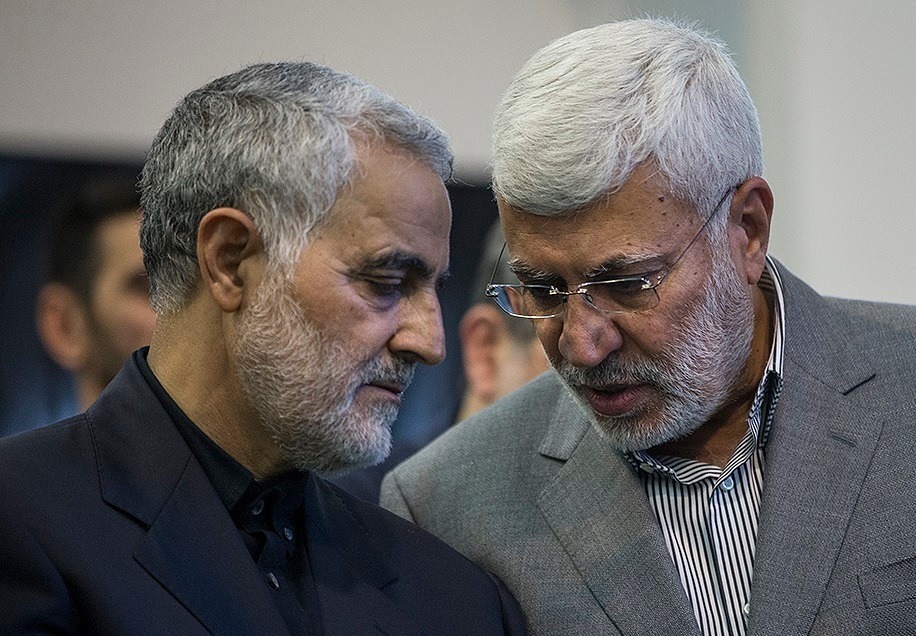The fact that the US regime targets a high level official of the Islamic Republic of Iran in the territory of a third country violates the most obvious principles of international law as well as the United Nations Charter. Before further analysis, let’s first examine the legal aspects of the issue:
- Martyr Soleimani was traveling in Iraq within Iran-Iraq intergovernmental cooperation in the fight against terrorism. His field presence in Iraq was the source of charity, stability and security for the people and the ruling establishment in Iraq. The most important success in the record of this martyred commander was the elimination of ISIS terrorists in Iraq and the restoration of the land from the self-declared so-called Islamic State (Daesh). Thus, the presence of Commander Suleimani in the Iraqi territory was in coordination with and with the consent of the Baghdad government.
- Commander Soleimani was a senior official of the Islamic Republic of Iran and naturally enjoyed the accepted and customary immunities in foreign missions.
- The US regime, which claims to be fighting terrorism, has admitted that the US president, in consultation with the US military and security apparatus, ordered the assassination of the commander of the Qods Force. Accordingly, he pleaded guilty to perpetration, and that confession should, in any eventual court, be a place of international citation and responsibility for the Washington government.
- Iraqi Prime Minister Adel Abdul Mahdi has stated: “Assassination of senior Iraqi officials or assassination of state officials of a friendly country is a blatant violation of Iraqi sovereignty.” Iraqi President Barham Saleh has also condemned the assassination of Qassem Soleimani, though the Iraqi government must also be accountable for its part in protecting the senior Iranian official, but it can be said that Iraq has exonerated itself from this terrorist act and has said it was unaware of the US crime.
- On April 30, 2019, a countermeasure law was adopted in Iran against the United States declaring the Islamic Revolutionary Guard Corps a terrorist organization. According to this law, the US Central Command (CENTCOM), the forces and organizations or entities under its command, were declared terrorists and as a result any military or intelligence assistance to these forces to counter the IRGC and the Islamic Republic of Iran will be regarded cooperation with this terrorist action.
- On October 2018 the Revolutionary Guards launched a rocket attack on the headquarters of the Takfiri terrorists in the eastern Euphrates (eastern Syria) in response to the ISIS terrorists attack on a parade in Ahvaz in southern Iran) on September 22 of the same year in a most vigorous and accurate manner. Iran’s decisive missile response to terrorists’ threats and actions has been accepted as a procedure, and the right of self-defense on the international stage has been met with no state opposition.
Given the above-mentioned points, it can be concluded that the US forces’ action against the late commander of the Quds Force is a terrorist act and has international implications for the US government.
Although the International Court of Justice (ICJ) has described countermeasures in international law part of a series of reprisals that have nothing to do with the use of force or armed hostilities, but it should be said that it recognizes legitimacy of countermeasures. It reaffirms that when the injured state responds to the wrongful act of another state its illegitimate aspect is abolished. The purpose of countermeasures is to protect oneself, to make the wrongdoing state comply with its obligations and to compensate the injured state. Countermeasures in accordance with Article 22 of the Draft on Responsibility of States developed by the United Nations Commission on International Law are one of the remedies of international responsibility of the state.
Accordingly, the arrest, trial and punishment of the perpetrators and agents of the crime are among the most commonly accepted countermeasures in international law that can be pursued without creating any international responsibility for the state. While such actions may seem unlikely, the US forces must be made understood that they will have no more immunity in the region, either because of the law mentioned above or because of their involvement with terrorist forces.
In addition, if we apply International Humanitarian Law, then because Iran and the US are not formally at war, then targeting an Iranian official intentionally, has a terrorist nature, so the American action could be regarded a war crime as well.
It should be borne in mind that humanitarian rights, including the four Geneva Conventions, the Additional Protocols, customary laws and other treaties in this field, prohibit, without exception, terrorist acts committed in the course of a domestic or international conflict. Humanitarian rights term major violations of the Geneva Conventions in the form of terrorist acts war crimes and oblige states to prosecute perpetrators of war crimes within the global jurisdiction at their courts; therefore, all states today must support Iran and have the responsibility to put prosecute American terrorists and their mercenaries for their crimes.










0 Comments